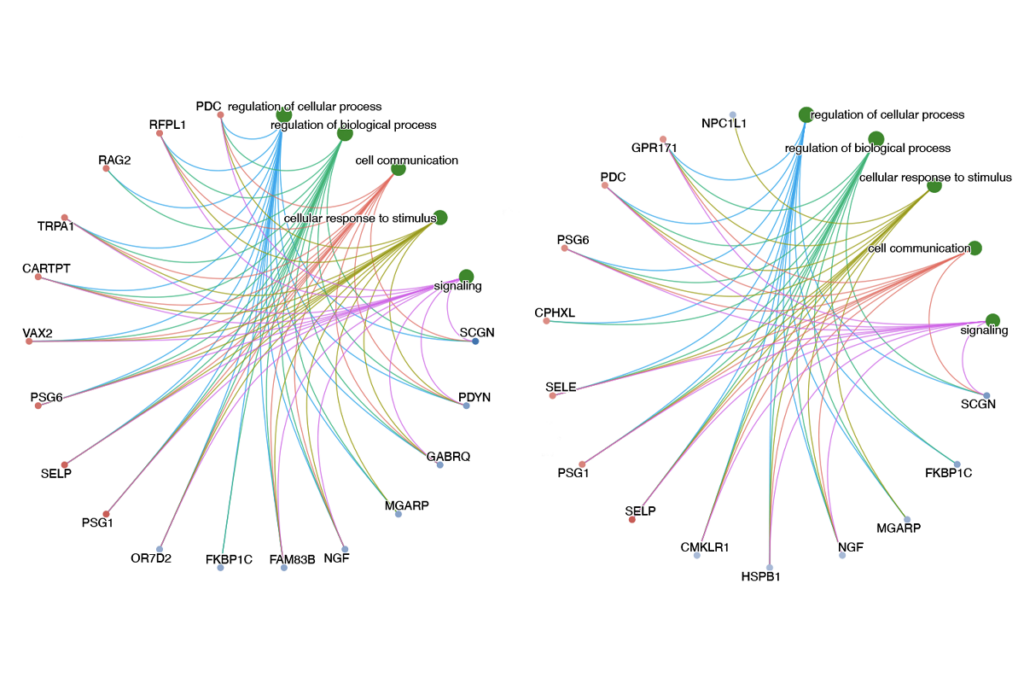In 2019, Dorothy Tse was a postdoctoral researcher with dreams of running her own academic lab. For inspiration, she began reading self-help books about leadership in business, and although the specific recommendations didn’t always apply to her life in academic research, she found many similarities: Just like someone launching a startup company, she was going to have to find “investors” and put out a “product” as she opened her own lab.
Once Tse got a position as a principal investigator (PI) at Edge Hill University in Ormskirk, England, she continued to seek guidance from the business world. Tse spoke with Spectrum about how thinking of her lab as a startup helped focus her research.
The conversation has been edited for length and clarity.
Spectrum: What was the biggest challenge you faced when you started your lab?
Dorothy Tse: Time management. As a PI, we have this cycle of getting a grant, hiring people and also doing research. But on top of that, as an academic, I also need to teach. And the other thing is citizenship, or administrative duties for the university. I had this picture in my head — like I’m spinning a lot of plates.
S: How did thinking about your work from a business perspective help you deal with that?
DT: I started to think about my “core values” in a way that a company would, and how I could apply that to myself and to the lab.
When I define my lab’s core value, the first thing I think of is, when we do our research, what is its impact on society? That helps us to decide which projects to focus on. Right now, for example, I’m looking at a translational behavior model — a memory task that we first developed in animals, and which we’re now working to translate to humans. The goal is to look into whether that is a way to detect early-onset dementia.
Another core value for the lab is personal development. So when a student starts in the lab, we prioritize figuring out the skills they want to learn, and seeing how that aligns with the lab’s goals.
S: What about your personal core values?
DT: I’m a mom of three children, and I want to spend time with my children. And running a lab is not a 9-to-5 job. Sometimes after the kids go to bed, I’ll stay up to do work. And so figuring out how to have time for my family and myself, but also help my lab to grow — that’s a core value for me. If I put more time and energy into the lab, maybe it could grow faster. But is it sustainable?
S: What are some other principles from the business world that helped you as you set up your lab?
DT: When I hire people for the lab, I think about which skills they bring to the team and how that fits with what we have, in the same way a startup would. I also think a lot about our product, which is research publications, and the importance of keeping up a high standard for that product. And also, being sure to advertise the product, which is important for getting funding.
But one of the biggest realizations was when I read about the distinction between a leader and a manager. The analogy had to do with getting a group of people to cut down some trees in a forest. The leader is the person who has the vision — the one who says which forest. And the manager will figure out how to motivate the team to do that.
Right now, I don’t have a lab manager, so I have to do both: I establish the vision, and I also carry out that vision. This realization — that they are two different jobs — has allowed me to communicate more effectively with my team. For example, as a leader, I create the vision for the project and inspire my team members to embrace it. In my managerial role, I strategically plan the steps that will lead my team toward achieving these objectives. I consider how to move from one goal to the next.
Jobs, trainings and funds:
- Applications are open for the Simons Foundation’s Independence Awards, which provide up to two years of postdoctoral support followed by three years of funding after a move to a tenure-track position. Applications are due 10 January. (The Simons Foundation is Spectrum’s parent organization.)
Recommended resources:
- New principal investigators should start thinking early on about who they want to hire, because the process takes time, said Tina Lasisi, assistant professor of anthropology at the University of Michigan in Ann Arbor, in an interview with The Scientist about some of the challenges associated with setting up a lab.
- Postdoc morale has improved over the past three years, according to a Nature survey. In 2020, only 28 percent of postdoctoral researchers reported feeling optimistic about their future; that figure grew to 41 percent this year. And the percentage of respondents who reported working overtime shrank, whereas the percentage who felt that their mental health and well-being were supported grew.
- The majority of postdocs do not use ChatGPT or other generative artificial-intelligence tools, but those who do tend to use them to refine text and improve their code, according to a Nature survey.
- Funding agencies should not discriminate against researchers who do not relocate for their postdoctoral training, writes Shanta Hejmadi, a senior data scientist for Metro Transit in Minneapolis/St. Paul, Minnesota, in an article for Science.
- Andrea Armani, senior director of physical sciences and engineering at the Ellison Institute in Los Angeles, California, has some practical advice for first-time conference presenters:
On a related note, what is one piece of *practical* advice for a first time conference goer?
I’ll go first: “I don’t know” is an acceptable answer to a question.#sciencetwitter https://t.co/0vhJSgTZTC
— Prof. Andrea Armani (@ProfArmani) October 20, 2023
What would you like to see us cover in this newsletter? Send your thoughts to [email protected].





